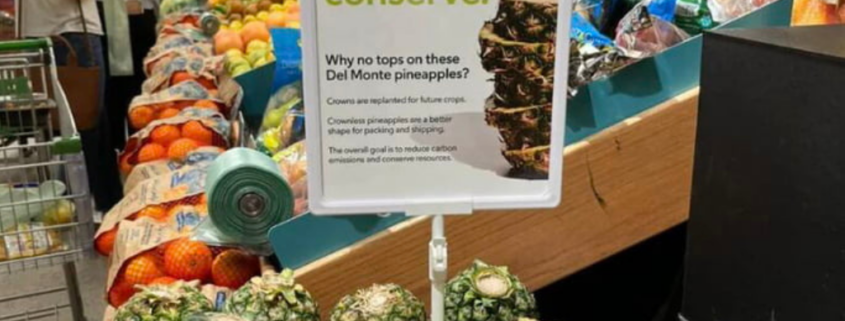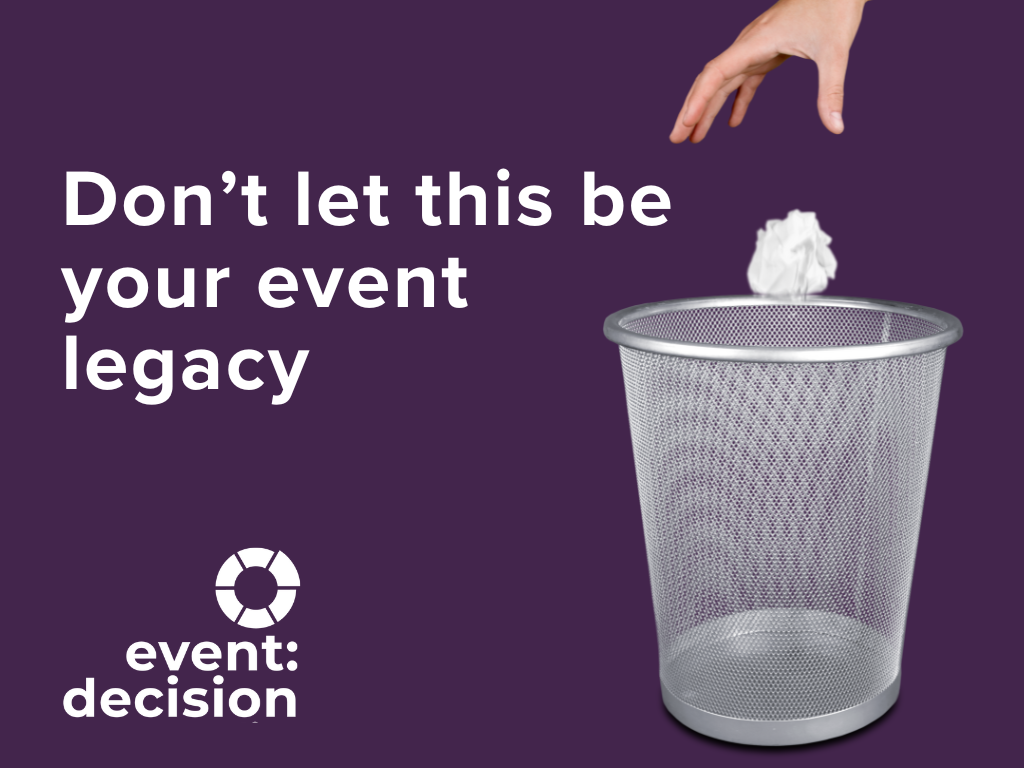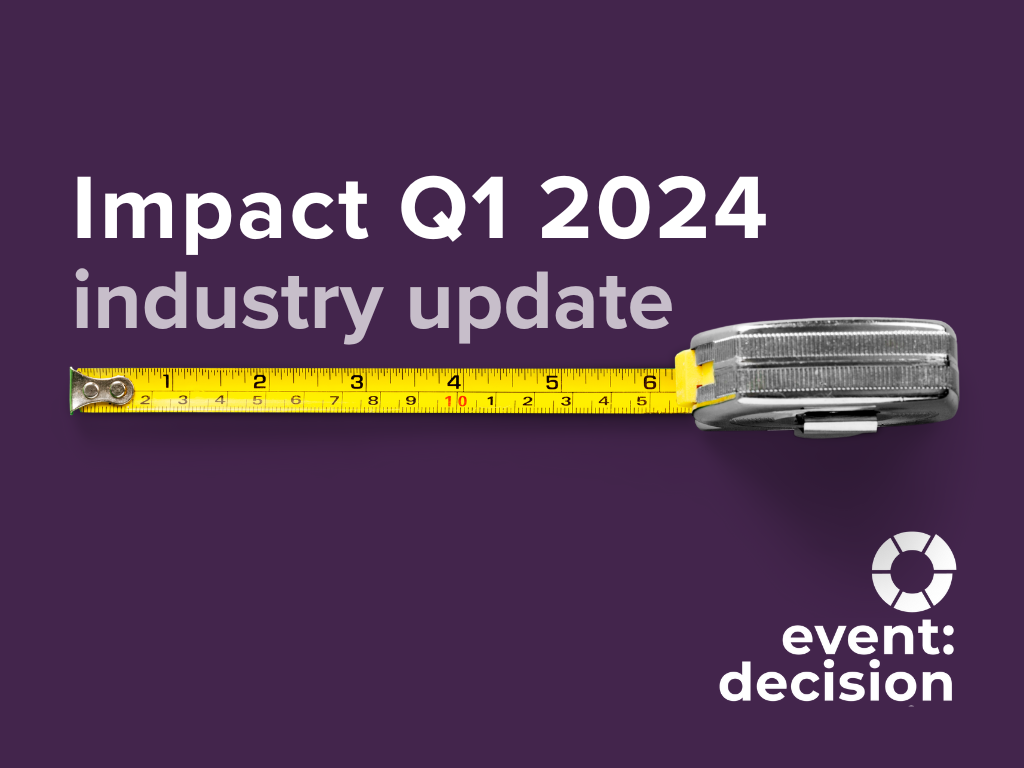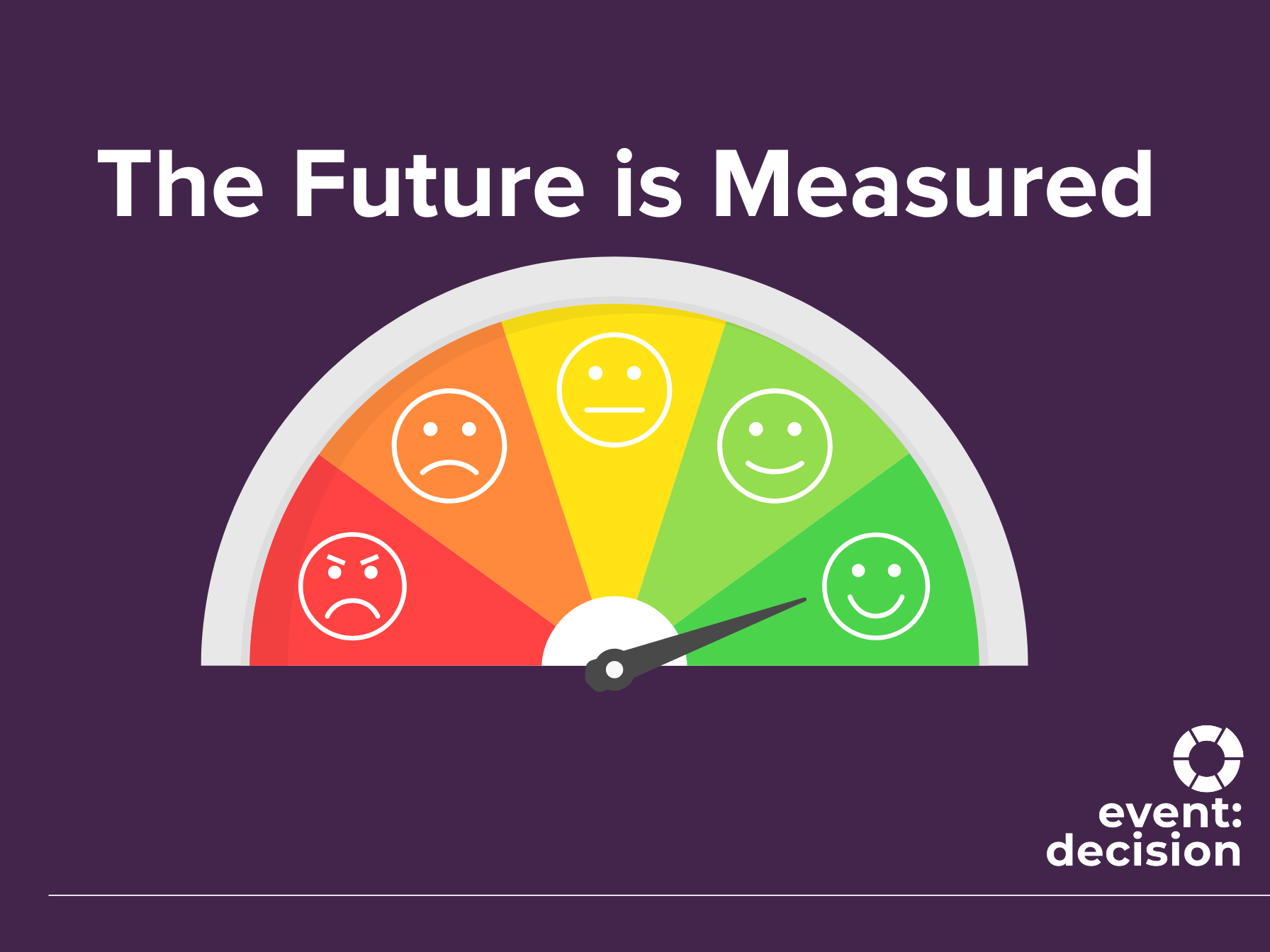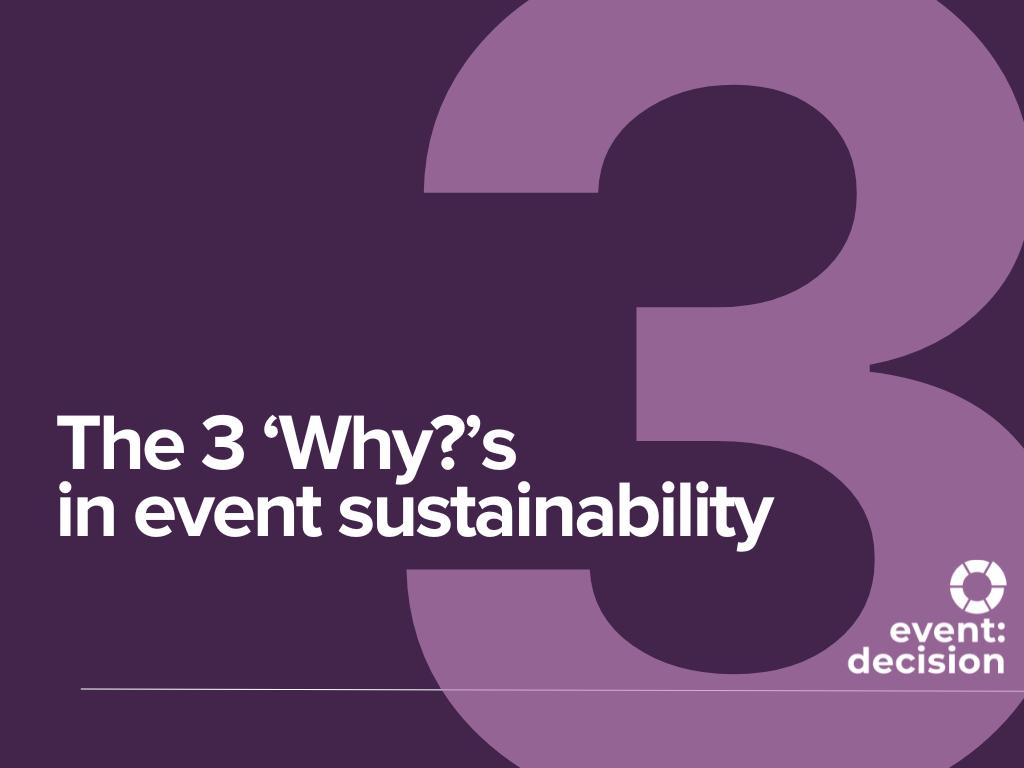What #EventProfs can Learn From a Pineapple
What lesson does a tropical fruit hold for #EventProfs?
Consumer psychology plays an important role in influencing individual behaviour and decision-making. As #eventprofs look to promote sustainability among attendees, understanding how consumer psychology works can be a powerful tool. Two lessons from the retail industry — new approaches to selling pineapples and the success of ‘wonky veg’— offer useful lessons in what it takes to win over the consumer.
The Power of Perception: The Pineapple
In Costa Rica some pineapple growers found that cutting off the tops (‘crowns’) of pineapples allowed more fruit to fit in shipping crates, reducing their carbon footprint by more than 20%. Other growers and European supermarket chains all rejected the idea of adopting the approach as they felt consumers just wouldn’t buy the fruit without their distinctive tops. However, one retailer was persuaded to display the crown-free pineapples with signage explaining their sustainability benefits, and to their surprise – consumers bought as many crown-free pineapples as crowned ones.
The Lesson for #EventProfs:
If we want to encourage sustainable behaviour, we need to commit to education and use signage and visual cues to highlight the available sustainable choices at our events. We can’t assume that visitors will reject, or accept, sustainability efforts without telling them the why of the option we’re asking them to take. We may believe that human beings are inherently lazy and will prefer the familiar or the easy option – but if we take some time to explain the benefits, the pineapple story tells us we will indeed adopt alternatives. Don’t assume it always has to be done the way it’s always been done!
Social Norms: the ‘Wonky Veg’ Story
The ‘wonky veg’ phenomenon also demonstrates the power of social norms in consumer psychology. One supermarket started promoting misshapen vegetables, which would typically fail strict quality control, as a sustainable choice at a slightly lower price. By reframing the unusually-shaped vegetables as an ethical option, visually flagging that a deliberate choice had been made in the shoppers’ baskets and trolleys, they tapped into the desire for social acceptance, aligning sustainable behaviour with a positive image.
The Lesson for #EventProfs:
We can leverage the concept of social norms by highlighting and celebrating sustainable actions taken by others. For instance, recognising and rewarding attendees who actively engage in eco-friendly practices during the event, such as using reusable water bottles or participating in recycling initiatives, can create a positive social norm around sustainability. This approach taps into our inherent desire to belong and be accepted, increasing the likelihood of sustainable behaviour.
What it Takes to Encourage Sustainable Behaviour at Events:
Using crown-free pineapples and wonky veg as our inspiration how can we leverage consumer psychology in other ways to encourage sustainable behaviour at events? One example might be in the area of encouraging sustainable travel choices.
Encourage carpooling or public transport by incentivising more sustainable travel: additional digital swag, fast-track entry or free content for delegates or visitors travelling via public transport, or example, or offer subsidised tickets, WiFi or coffee vouchers for delegates adopting your sustainable credentials.
Using the same approach, also take the opportunity of highlighting to visitors what previous sustainability efforts have achieved by way of encouraging repeat behaviour. “At one event alone, we saved 33 meals which were shared with 7 local families. The environmental stats also add up, with 10,420 litres of water saved and 60kg of CO2 emissions avoided. Just think of the impact across our series of 10 events” is a genuine quote from a corporate planner in May 2023.
Understanding consumer psychology can be incredibly useful for event planners as we aim to promote sustainable behaviour. By applying lessons from other industries, event planners and owners can create environments that inspire and encourage sustainable choices. By choosing to educate everyone involved in the event on the benefits of sustainability, events can become powerful catalysts for positive change, promoting a more sustainable future.
If you’re interested in finding out more about sustainable event planning, why not use track to calculate your own event’s projected carbon footprint? Do get in touch, we can give you a demo to illustrate just what it could do for you.


